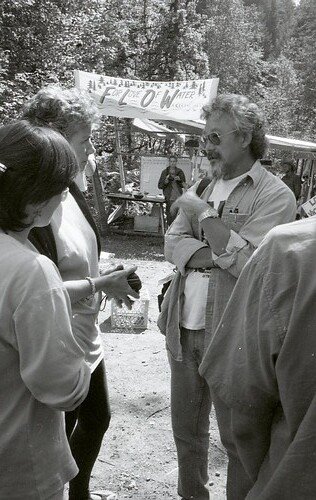David Suzuki’s Climate Warning: “It’s Too Late” Still Means Action

Recently, David Suzuki — the voice of Canadian environmentalism for half a century — made headlines when he told iPolitics that the fight against climate change is lost. (Read the article here).
That’s a gut punch. When the man who has spent decades ringing the alarm bell says we’ve blown it, what are we supposed to do? Throw up our hands? Hide in denial? Get cynical and keep shopping like nothing matters?
Suzuki’s point wasn’t that we should stop acting
Not quite. Suzuki’s point wasn’t that we should stop acting. It was that the fight to prevent climate disruption entirely is over. Now we’re in the phase of bracing, adapting, and getting real about what’s coming.
So, where does that leave the rest of us
Ordinary people who don’t have power plants or policy portfolios in their back pocket?
Separating Climate Change From Politics
One of the biggest hurdles to climate change is its entanglement with politics. Carbon taxes, subsidies, regulations, party platforms. They all matter, but they can make climate action feel like it belongs only to government or corporations.
Here’s the truth: politics can shape the playing field, but the climate doesn’t care about parties, slogans, or talking points. It responds to what’s in the atmosphere, the oceans, and the soil.
That means our daily lives:- How we move, eat, build, and share matter just as much. We don’t have to wait for permission from Parliament Hill or a U.N. summit. We can choose resilience right where we live.
What Individuals Can Do
Suzuki argues that our political and economic systems are built on shaky foundations. Putting growth and profit ahead of clean air, water, and soil. While we can’t reinvent the global economy overnight, we can still take action at the scale of our own homes and communities.
Here are a few pathways forward:
1. Shift from “prevention only” to “resilience too”
We still need to cut waste, emissions, and over-consumption. But we also need to plan for the reality of fires, floods, storms, and supply shocks. That might mean:
Building a small backup pantry of shelf-stable food. Knowing how to purify water if your tap stops flowing. Checking on neighbours during a heat wave.
2. Learn from Finland
Suzuki pointed to Finland, where citizens receive government letters about preparations for future emergencies, including climate-driven disruptions. They encourage neighbourhoods to organize and to know who is most vulnerable and what resources are available.
We don’t have that here in Canada. But nothing is stopping us from creating a community contact list, mapping out who has a generator, who has medical training, and the nearest safe spots.
3. Take stock of your own footprint
- Eat lower on the food chain (meat and dairy carry the highest climate cost).
- Cut unnecessary driving and flights.
- Support renewable energy if you can. Whether it’s rooftop solar, a green power plan, or even joining a local co-op.
These aren’t just symbolic. They lower the pressure on the systems that are already cracking.
4. Invest in skills, not just stuff
A generator can run out of gas, but knowing how to cook on a rocket stove or grow food in a container garden sticks with you.
Skills like preserving, repairing, and basic first aid make you more resilient than any gadget.
Why It Still Matters
Suzuki’s message isn’t a call to despair. It’s a call to maturity. If prevention hasn’t been enough, then preparation has to be the next step.
Yes, some damage is locked in. But the scale of the harm still depends on choices made now.
The climate fight isn’t won or lost at a summit table. It’s lived in our kitchens, gardens, and neighbourhoods. And that means none of us is powerless.
